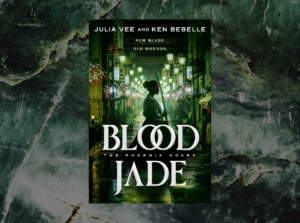American Gods by Neil Gaiman
Released from prison, Shadow finds his world turned upside down. His wife has been killed; a mysterious stranger offers him a job. But Mr. Wednesday, who knows more about Shadow than is possible, warns that a storm is coming — a battle for the very soul of America . . . and they are in its direct path.
My first Neil Gaiman novel! Hurrah! If you haven’t already, check out this stupendously awesome address! So for months, I’d been hearing about Neil Gaiman from my friends (yes, I know he’s prolific and I know he’s been around, but apparently I’ve been living under a rock. Sue me.) Next up, my list includes Neverwhere, Anansi Boys, and Fragile Things. Neil Gaiman also wrote Stardust, which just happens to have been turned into one of my favorite films (again, I realized this recently. Basically made me even more excited for my first Neil Gaiman experience). If you’ve never seen it, go watch it. It’s amazing. Seriously. Watch the whole thing.
I’m always impressed by people who have such an interest in and a command of mythology. It’s so vast that anyone who chooses to undertake projects that deal with it directly gets my vote. I find it interesting myself, but I confused/mixed-up too easily. At least for formal learning. I tend to learn more and more by default the older I get.
What I enjoyed most about this novel was how Gaiman played with reader conceptions. Some things that happen in the novel are very expected. But instead of seeming trite and cliched, they work. It’s almost as if, by giving the reader some givens, Gaiman can go further and do more with this crazy universe he’s creating. And as you read, in no place do you catch the tell-tale signs of a lazy author. Everything is methodical and thought-through. There are places where one sentence contains an unexpected detail that connects back elsewhere in the novel, without ever being directly dealt with. That probably didn’t make sense. But if you’ve read or when you readAmerican Gods, you’ll see what I mean.
One friend told me that one thing that bothered her about this novel was that Shadow isn’t really a character you can relate to or connect with. But I came away thinking that’s okay. I don’t think you’re supposed to connect with Shadow. It’s not really a book about Shadow. It’s a book about mythology and the intersection of old and new. It’s also about the clash of the rustic and the rural with the industrial and the city. In this way, I don’t think it matters whether we relate to Shadow or not. He’s there so that the story can exist, but he’s not the base of the story. If that makes sense. Shadow tends to go along with most things without really putting up much resistance. On the one hand, I see why, and on the other hand, I don’t. I think it’s this tendency in Shadow that makes him hard to relate to. People are kind of ornery and stubborn by nature. Shadow is extremely compliant. But, after all, he’s called Shadow. The general definition of a shadow is:
-A dark figure or image cast on the ground or some surface by a body intercepting light.
And that is Shadow, to the utmost extent. He’s somewhere between a person and a non-person, somewhere between death and life, always in between, trailing, on the margins.
You see what I mean about Gaiman being a careful writer?




